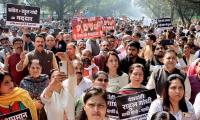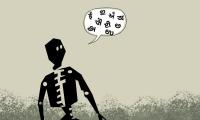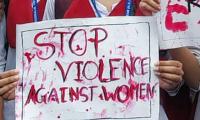The Supreme Court on Tuesday flayed the doctors' agitation against the additional 27 per cent reservation that the Manmohan Singh government plans to introduce in the country's higher educational institutions.
The court said for the larger public interest, the ongoing strike by resident doctors and medical students in New Delhi and other parts of the country should be called off.
The Supreme Court, the Press Trust of India, reported, also said since the matter was sub judice, no comment, protest and agitation could be made on the issue.
Legal experts differ with the Court.
"How can the Supreme Court say there cannot be any comment or protest on the issue of reservation in the country?" legal expert Prashant Bhushan told rediff.com
The court order declaring the doctors' strike as illegal makes immense sense as the agitation has affected healthcare services in the country, Bhushan felt.
"But the court cannot say that since the matter was sub judice, no comment or protest could be made on the issue," Bhushan said. "India is a democracy and freedom of expression is guaranteed under the Constitution. The court order is against this freedom of expression," he added.
Bharatiya Janata Party leader Arun Jaitley, a Supreme Court lawyer, agreed with Bhushan. The doctors' strike may be over, "but the issue is still alive, and the court cannot say that a public debate cannot take place on the reservation issue in the country," Jaitley told rediff.com
If the court is going to prevent public debate on such an important issue as reservations, it will have wider ramifications, Jaitley added.
For instance, the Ayodhya issue has remained sub judice for the last 15 years, he pointed out. "But that has not prevented any public debate on the Ayodhya issue all these years."
Also see
Complete Coverage: The Reservation Issue








